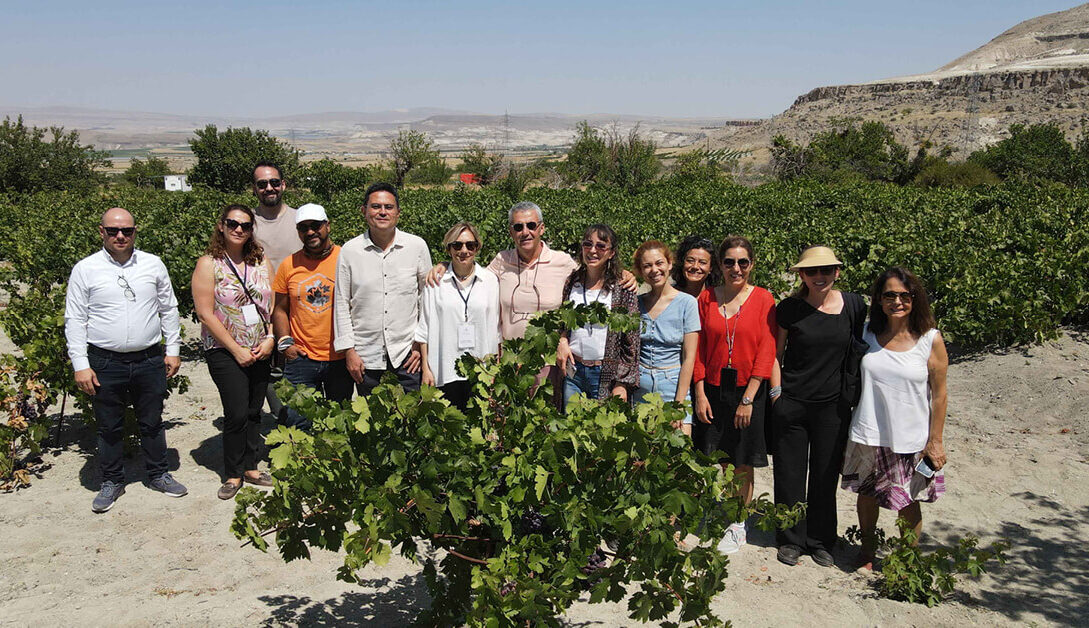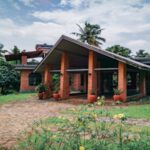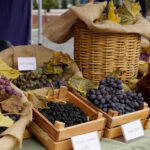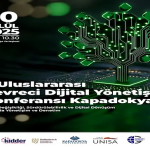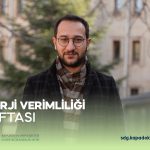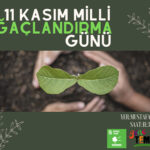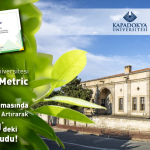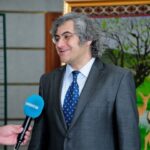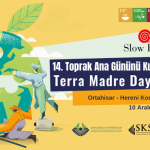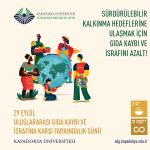









Our university and Slow Food Cappadocia organized their first event on August 22-23. The panel, “Using Seasonal Local Products in Restaurants, Challenges and Benefits,” was held at the Uçhisar Art Campus.
The event, which discussed and examined healthy and sustainable agricultural methods, was attended by our Board of Trustees Coordinator Funda Firuz Aktan, our Rector Prof. Dr. Hasan Ali Karasar, the Rector of Kayseri University Prof. Dr. Kurtuluş Karamustafa, the Rector of Nevşehir University Prof. Dr. Semih Aktekin, Ürgüp District Governor Mehmet Maraşlı, Slow Food Cappadocia Spokesperson Kaan Aktan, along with local producers, tourism operators, academics working in the fields of tourism and gastronomy, chefs, members of the Slow Food Chef Solidarity Platform, and local NGOs.
The event, aimed at promoting seasonal local products in restaurants, raising awareness about creating more value through this practice, and highlighting the challenges faced in using local products, also included on-site product inspections. The focus was on diversifying and increasing the usage areas of locally produced agricultural products made with healthy and sustainable methods to turn them into high-added value. The panel, titled “Using Seasonal Local Products in Restaurants, Benefits and Challenges,” thoroughly discussed how local agricultural production can be effectively used in tourism and food & beverage businesses and emphasized the importance of addressing the gaps in critical steps of the value creation process such as regular supply, logistics, consumption points, and effective communication, to ensure that producers receive the value of their labor.
Our Rector Prof. Dr. Hasan Ali Karasar
Prof. Dr. Hasan Ali Karasar, our Rector, pointed out that tourism is the sector providing the highest foreign exchange earnings and emphasized the need to raise awareness in this regard. Karasar stated that tourism relies on a dynamic three-legged base, mentioning transportation, accommodation, and gastronomy. He noted that the gastronomy sector, which caters to high-value, high-income visitors, is where we are lagging. To address this gap, Karasar mentioned that Kapadokya University is not only training human resources for the sector through its Gastronomy and Culinary Arts Department and Culinary Program but also engaging in necessary activities in close contact with the Slow Food network so that local producers can offer their products at high value during their seasons to meet the gastronomic needs of local tourism activities.
Referring to Turkey’s 2023 Tourism Strategy, which targets high-income visitors, Karasar said, “If we want a qualified tourism model and do not want to destroy our country with mass tourism, we need to ensure that sustainable tourism, sustainable gastronomy, and local supply chains are developed in a way that makes both the producers and the local people happy, by consuming every type of production, whether endemic or not, in the most accurate way.”
Slow Food Cappadocia Spokesperson Kaan Aktan
Kaan Aktan, the spokesperson of Slow Food Cappadocia, mentioned that Slow Food is an international organization with more than 25 years of history and that the Slow Food Cappadocia Sustainable Gastronomy and Tourism Union was established within this structure three months ago. He explained that their goal is to reach consumers fairly with a production method that is both clean and sustainable, without harming nature during the production process, by using products that are grown and harvested in their season. Aktan highlighted that they visited local producers over the two days, drawing attention to the difficult conditions under which the production is done.
Kaan Aktan continued, “As an initiative of Slow Food, the goal of the Chef Solidarity group is to provide chefs who wish to practice their craft according to these principles with a roadmap, sharing good examples. Chefs have a huge role in the production-to-consumption chain, both in creating the quality of consumption and writing its story and in giving the product and the producer the value they deserve, starting from the difficult journey of production. As a new organization, our chefs visited the Cappadocia region, and we have visited many of our producers since yesterday. I believe it was a very beneficial visit, and I hope all participants share the same opinion. We will continue our efforts to implement these principles from now on.”
After the opening speeches, a panel moderated by Slow Food Tarsus Spokesperson Yasmina Lokmanoğlu was held. The panel featured Ahiler Development Agency Secretary General Bekir Varol, Ankara Hacı Bayram Veli University Faculty of Tourism Professor Dr. Bilgehan Gülcan, Columnist and Degustator Elvan Uysal Bottoni, Chef-Entrepreneur Duran Özdemir, Producer Ayfer Kayaalp, Murat Avcı from Fide Türk Agricultural Products, and Gastronometro Managing Trainer Chef Murat İlke Özipek.
During the panel, producers exhibited products specific to our region at the demonstration stands set up in the campus foyer area.


